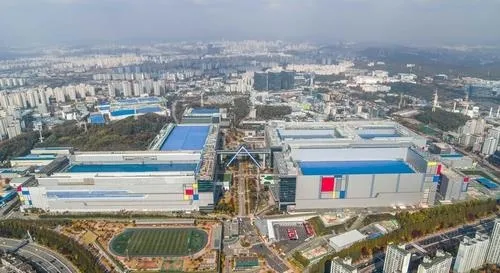Should Samsung Group Change Its Bonus System?

Synopsis
Key Takeaways
- Samsung Group is facing demands for a reform in its bonus system.
- The current model lacks transparency compared to SK hynix.
- The coalition represents around 300,000 employees.
- SK hynix’s new model serves as a benchmark for proposed changes.
- Enhanced transparency could improve employee morale.
Seoul, Sep 30 (NationPress) A coalition of labor unions representing 13 affiliates of Samsung Group is set to advocate for changes in the group's performance-based bonus structure on Tuesday. This comes on the heels of a recent revision in the bonus framework of its local competitor, SK hynix, which is anticipated to significantly increase its bonus distributions.
The coalition intends to demand enhanced transparency in how bonuses are calculated during a press conference scheduled to take place in front of Samsung Electronics Co.'s headquarters in Seoul. They have pointed to the new system at SK hynix as a prime example of what they are advocating for, according to reports from Yonhap news agency.
Earlier in the year, management at SK hynix reached an agreement with its union to eliminate the cap on profit-sharing payouts, establishing bonus distributions at 10 percent of operating profits.
Currently, Samsung Group utilizes the excess profit incentive (OPI) system, which determines bonuses by subtracting certain costs, including taxes and investments, from the operating profit. Consequently, even in profitable periods, the ultimate bonus disbursement can be relatively modest.
"Representing 300,000 Samsung employees, we are organizing this press conference to urge Chairman Lee Jae-yong and Samsung Group to implement a transparent bonus system akin to that of SK hynix," the coalition stated in a release.
This month, unionized employees at Samsung Electronics sent a formal request to Chairman Lee Jae-yong, urging the firm to enhance the clarity of its bonus system.
In a document directed to the de facto leader of Samsung Group, employees called for a more transparent system for bonus evaluation and the elimination of the current structure based on economic value added (EVA).
"While SK hynix recently opted to dedicate 10 percent of its annual operating profit towards its bonus scheme, Samsung Electronics continues to apply the EVA method, which is criticized for its lack of transparency," the union remarked, as reported.









